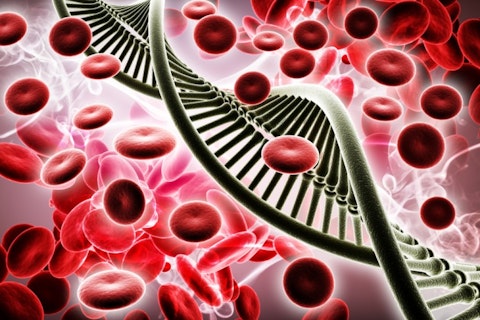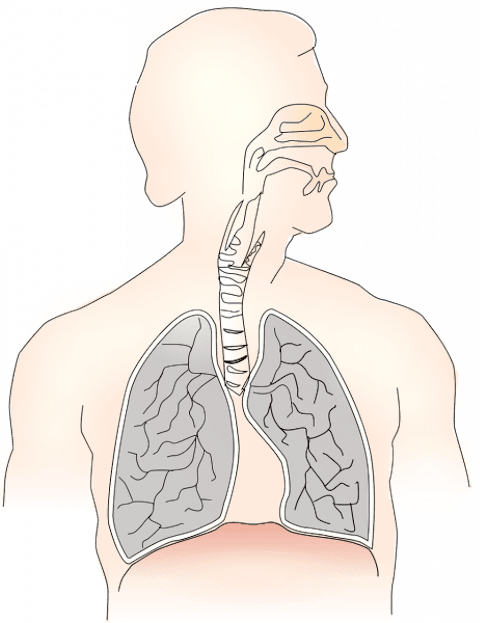In college, I hated getting assigned a research paper. While it’s interesting to learn about a new, random topic, research papers are typically very lengthy and can range from ten pages to sixty or more, depending on the level of degree you are pursuing. If I recall correctly, my longest research paper requirement was somewhere between twelve and fifteen pages which isn’t so bad, I guess. As a journalism majority, most of my papers focused on journalism and communications, but I can’t imagine having to write a science-related paper. To be honest, I really don’t even know the protocol for writing a science-related research paper.

Copyright: nexusplexus / 123RF Stock Photo
If you’re pursuing medicine or most other science-related fields, it’s probably inevitable that you will one day be finding yourself searching “research paper topics genetics” to do your own paper. The study of genetics is constant and there is still much more to learn. In simplest terms, genetics is the study of genes and how they are inherited. There are a number of genetics topics of interest, and under that umbrella there’s the study of chromosomes, DNA, gene mutations and much more. So if you’re looking for genetic topics for presentation, you’re sure to find something to keep the group interested, whether you discuss how bacteria affect genes or how you can cross genes of species to make an animal that glows (weird, we know). For those of you who are researching because you’re pursuing a career in medicine, we have another great article – 10 Most in Demand Medical Specialties in America.
To begin a good research paper, you will first want to start with learning about some recent research topics in genetics and find some that you would consider interesting genetic topics. If you don’t find a topic you think of it as interesting, chances are, you won’t write the paper well, and it will be a pain to get through. The most popular and currently discussed (not to mention, interesting) topics include stem cell research, the Human Genome Project and DNA barcoding. You might even want to take a look at a genetics research paper example to get you off on the right foot to write your own. You should have no problem finding examples on a site like Google Scholar. Once you go through these steps, you should be well on your way to writing your own paper. While it doesn’t sound like there is any easy topic to write about when it comes to genetics, unless that stuff comes to you naturally, we tried to come up with a list of at least some less complicated and easier to digest topics.
The categories of genetic disorders are monogenetic disorders, multifactorial inheritance disorders, and chromosome disorders. The ones that we have on our list are common and fall mostly on the monogenetic disorders category. These different categories explain the factors as to why genetic disorders occur, for example, monogenetic represents a mutation that affects one gene. Multiple genes mutation happens when the disorder is categorized as the multifactorial inheritance disorder, and the one that affects the chromosomes is, of course, the chromosome disorders. Yahoo Answers, Nemours, National Human Genome Research Institute, and Learn Genetics: Genetic Science Learning Center were the best sources for coming up with our current list. These DNA abnormalities are subjects of continuous study, but a wide range of research is available for each. Since there is not a quantitative way to say which disorders are “easier” to research than others, considering it’s easy to find information on all of the topics, we did not make a ranking of the disorders on our list.
Get your pencil and paper ready for our list of the easiest genetic disorders to research for a paper.
10. Celiac Disease
A hereditary gluten intolerance which attacks the small intestine is Celiac disease. Since it is hereditary, this means it runs in the family and passed down from generation to generation. If this Celiac disease is not spotted at the first sign of symptoms and treated, this could lead to dehydration and malnutrition. It has become so common that there is now a Celiac Disease Foundation where you can find a wealth of information.

Pixabay/Public Domain
9. Hemochromatosis
Does your body load too much iron? This is not just a simple metabolism malfunction, but it is a metabolism disorder called Hemochromatosis. If not treated correctly, the results of this disorder could be fatal.

Copyright: mikkolem / 123RF Stock Photo
8. Autism Spectrum Disorder
We are continuing our list with Autism Spectrum Disorder or ASD affects multiple functions of the body. The level of this disability can affect your skills as well as socialization, and a person with this genetic disorder may have difficulties socializing with others. There is no cure, but there are treatments and services that can help improve a person with ASD.

hidesy/Shutterstock.com
7. Marfan Syndrome
A serious aortic enlargement could be a sign of Marfan Syndrome. Marfan syndrome can be inherited but there are instances where this occurs for the first time in a family. This syndrome affects the connective tissue of the body, so it can affect a variety of different body parts. About 1 in 5,000 people have Marfan Syndrome, so it is more common than you think.

ibreakstock/Shutterstock.com
6. Albinism
Another hereditary genetic disorder is Albinism. This genetic disorder is a condition where melanin production is reduced or slowed down. Many don’t realize that Albinism could also affect vision and it is not correctable by eyeglasses.

Pixabay/Public Domain
5. Dwarfism
Coming in halfway through our list of easiest genetic disorders to research for a paper, we have dwarfism. The two types of dwarfism are proportionate short stature where the growth of limbs and trunks are in proportion and disproportionate short stature where limbs are not in proportion with the other parts of the body. There is a treatment that can help it, but it cannot be cured.

F. JIMENEZ MECA/Shutterstock.com
4. Sickle Cell Anemia
Sickle Cell Anemia affects the red blood cells in a person’s body and causes them to breakdown. The cause of this genetic disorder could be an inheritance of abnormal hemoglobin from each parent. Sickle-shaped blood cells can block the flow of blood through the body, which is obviously not a good thing.

RAJ CREATIONZS / shutterstock.com
3. Down’s Syndrome
Third among ten easiest genetic disorders to research for a paper is Down’s Syndrome that is not uncommon and there is currently no cure for it. An extra chromosome 21 is the cause of this genetic disorder and it can cause intellectual and genetic disorders. This can be detected even before birth when a child is screened for Down’s syndrome.

Pixabay/Public Domain
2. Huntington’s Disorder
Mood swings and depression are symptoms that could lead to a diagnosis of Huntington’s disorder, a disease where a rapid breakdown of nerve cells occurs in the brain. Since the target is the brain, it affects the physical and mental abilities of the person who has Huntington’s.

Copyright: jezper / 123RF Stock Photo
1. Cystic Fibrosis
To close out our list of easiest genetic disorders to research for a paper, you can’t go wrong selecting Cystic Fibrosis as a topic. While Huntington’s disease hits the brain, cystic fibrosis hits the lungs. The mucus buildup blocks the airways, which makes it hard for a person to breath. Not only does the mucus buildup occur in the lungs, but it also occurs in the pancreas and other organs as well.






